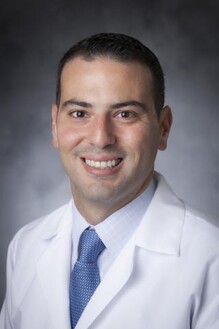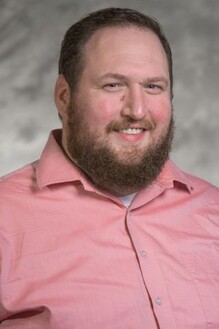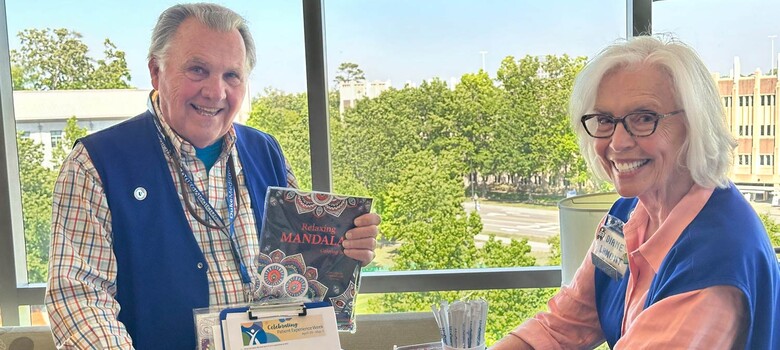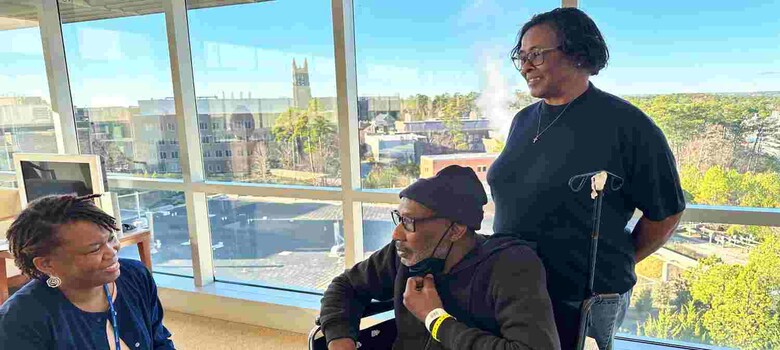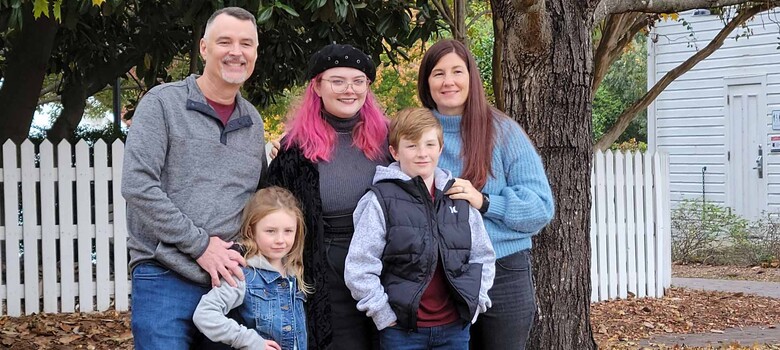Medical Family Therapy Helps Family Cope with Dad’s Cancer

Joe, Emerson, Denver, and Stephanie McFadden walk down a hallway of the Duke Cancer Center.
When Joe McFadden received cancer treatment at Duke, his eight-year-old son, Emerson, worried that his dad would be lonely. Duke medical family therapist Ellie Bautista, MT-BC, LMFT, stepped in to help Emerson make a music playlist to comfort his father.
Helping families and patients like the McFaddens navigate the complexities of cancer treatment and recovery is the goal of medical family therapists at Duke Cancer Centers across the Triangle. Duke Cancer Institute’s Patient Support Program offers these and other services cost-free.
Helping Children Express Feelings About Parent’s Cancer Experience
During sessions with the McFadden children, Bautista, a medical family therapist at the Duke Cancer Center in Raleigh, used creative ways to help Emerson and his nine-year-old sister, Denver, understand and cope with their dad’s cancer treatments. While playing Jenga, for example, they expressed their feelings about what was happening to their dad as they placed each block.
A two-sided stuffed octopus with a happy and sad face played the game with them. “’Octy’ was my sidekick in working with the kiddos,” said Bautista. “Sometimes it is easier for children to take advice from, or give advice to, a fun stuffed animal when talking about things they have a hard time with.”
McFadden's wife, Stephanie, said that Bautista also took her children to see the MRI machine where their father received treatment. “They got to go to their dad's treatment machine and see how the table moved around and see Joe's actual mask and how it clips to the table,” she said. “That brought them some clarity and peace as to where their dad was and what was happening when he was there.”
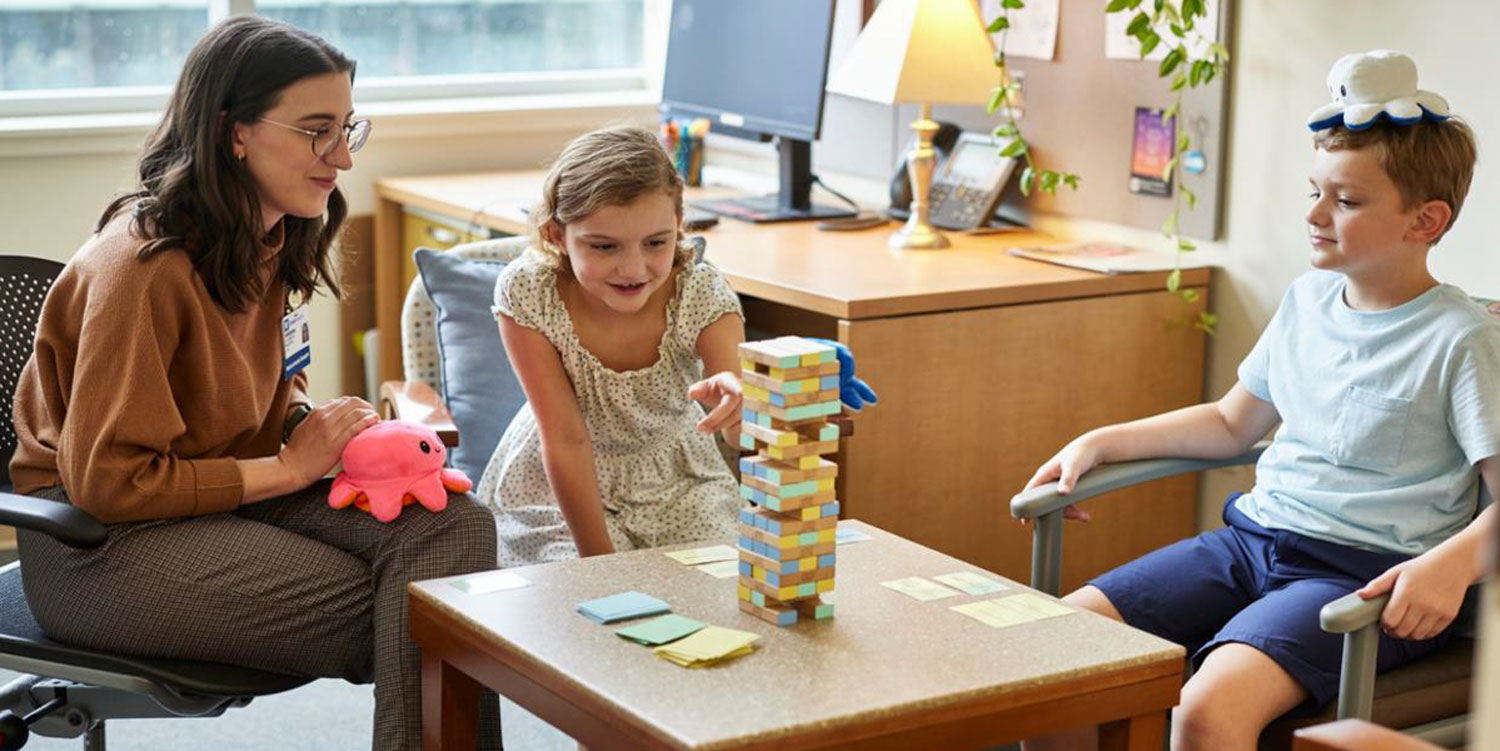
Support During Cancer Treatment
McFadden is now in remission, but he also relied on John Schweichler, MS, LMFT, a Duke Cancer Institute medical family therapist, for support during his two years of treatment for a rare form of non-Hodgkin's lymphoma that affected his sinuses and nasal cavity.
“John was my sounding board, the person I could talk to and express my frustrations, express my anger,” said McFadden. “When you get a cancer diagnosis, you don't know what to expect. You don't know why this happened to you. John was there for me to get through all of that, to understand. And to accept.”
Support Services Improve Patient Outcomes
According to Ralph Abi Hachem, MD, the Duke head and neck surgeon who treated McFadden, support services provided by Bautista and Schweichler can favorably impact patient outcomes.
“Support services such as medical family therapy are crucial to the well-being of our patients while they're undergoing treatment for cancer,” Dr. Hachem said. “They are often as important as medical treatment as they provide patients with a sense of security, hope, and emotional well-being. Joe had this attitude of hope, and I feel like that played into his treatment and recovery.”
Connecting Patients with Other Duke Services
Medical family therapists can also connect cancer patients to other services throughout Duke, said Schweichler. “We might suggest that they talk to their doctor about a referral to a specialist, such as palliative care. We can also communicate with doctors to request that they talk directly with the patient about their needs.”
Every medical family therapist with the Duke Cancer Institute works closely with a specific group of cancer specialists so that the therapists understand the disease and the side effects that patients may experience.
Joe McFadden is grateful that the services he and his family received were cost-free. “I worked with John Schweichler throughout the whole diagnosis, through my whole treatment, and even after. Incredibly, I didn't have to figure out how to pay for it.”

